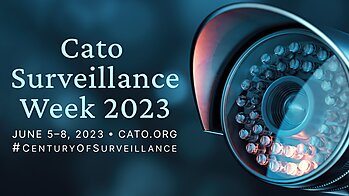Domestic Terrorism versus Constitutional Speech
Join the conversation on X using #CenturyofSurveillance. Follow @CatoInstitute on X to get future event updates, live streams, and videos from the Cato Institute.
Featuring


Extreme political views and speech have been a feature of American political and social life virtually since the founding of the republic. The Founders intended for the First Amendment to protect governmental infringements on speech, but throughout the republic’s history those protections have been breached on multiple occasions. The Alien and Sedition Acts, the Anarchist Exclusion Act, and the Espionage Act are just some of the examples of federal laws that have criminalized certain kinds of speech. But in a landmark 1969 Supreme Court decision in Brandenburg v. Ohio, the high court ruled that speech deemed inflammatory or even threatening could only be prohibited by the government if it is “directed at inciting or producing imminent lawless action” and is “likely to incite or produce such action.” Ever since, that decision has provided protection against government attacks on speech by individuals or groups across the political spectrum deemed offensive or politically disfavored.
But what happens when adherents of extremist ideologies no longer feel shouting their views is enough? The rise of the Oath Keepers, Proud Boys, John Brown Gun Club chapters, and other organized, armed groups raises the specter of a confrontation that morphs from a shouting match into a firefight in an American community between two ideological, violent factions. Does inflammatory speech always result in real violence? Does the Supreme Court’s decision in Brandenburg v. Ohio still draw the right line between constitutionally protected speech and that which is not? Has the rise and proliferation of social media platforms made the transition from violent speech to violent action easier and faster? Our panelists will examine all these issues and more.
This event is part of the 2023 Cato Surveillance Week series:
Session 1 • June 5, 2023
The Pernicious Surveillance Legacy of 9/11
Have officials in the executive branch and Congress learned anything from surveillance mistakes and overreaches?
Session 2 • June 6, 2023
Surveillance Reform Prospects
What do we actually know about the alleged effectiveness of the controversial FISA Section 702 electronic mass surveillance program?
Session 3 • June 7, 2023
Domestic Terrorism versus Constitutional Speech
Extreme political views and speech have been a feature of American political and social life virtually since the founding of the republic.
Session 4 • June 8, 2023
Biometrics: Privacy versus Public Safety
The explosion in the use of facial recognition and other biometric technologies by government and private‐sector entities has sparked a national debate about such systems.

This work is licensed under a Creative Commons Attribution-NonCommercial-ShareAlike 4.0 International License.


